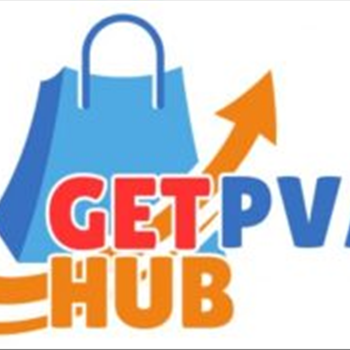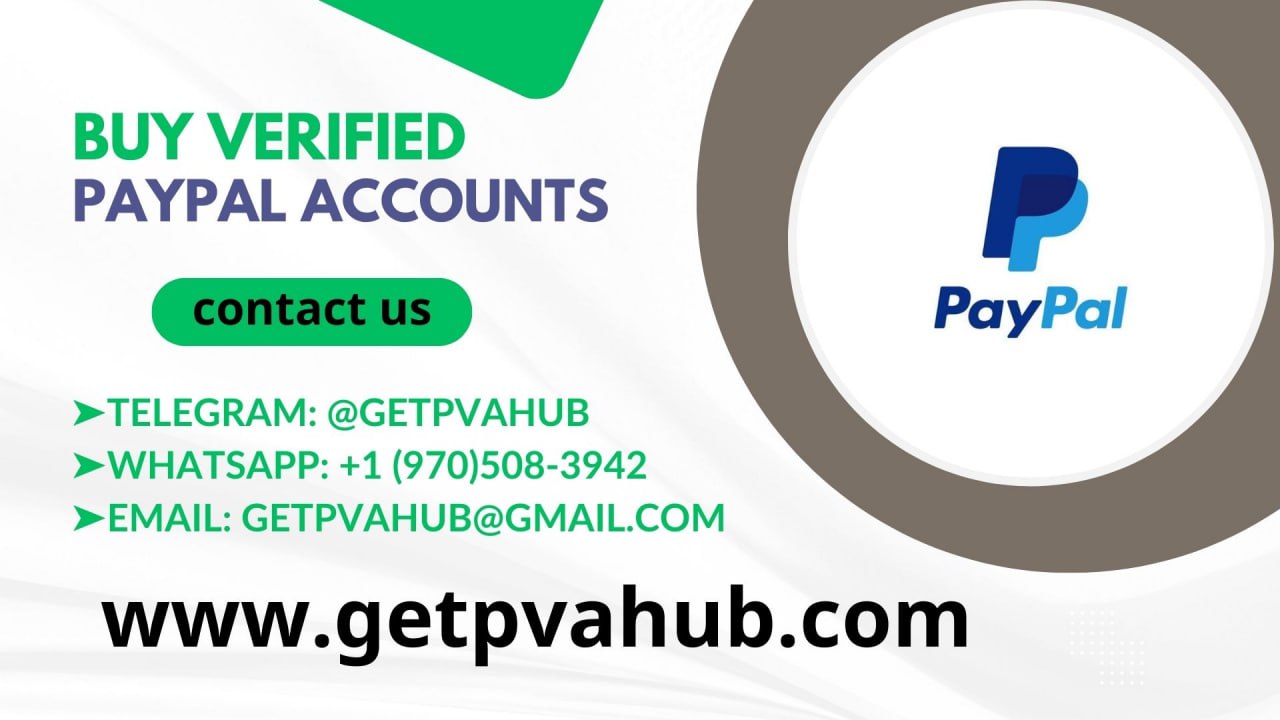Right Now
Buy Verified PayPal Accounts
The promise of a "verified" PayPal account for sale can be tempting, especially for freelancers, international students, or entrepreneurs in countries where PayPal access is restricted. Advertisements often market them as a quick fix to bypass limitations and instantly access full functionality.
However, the reality is fraught with significant risks that far outweigh any perceived benefits. This guide will dismantle the myths, detail the severe dangers, and provide you with safe, legitimate alternatives.
What Does "Verified" Actually Mean on PayPal?
Before discussing the risks, it's crucial to understand what a genuine PayPal verification is.
When you verify your own account, you prove to PayPal that you are the legitimate owner of the linked financial instruments. This process typically involves:
Confirming Your Email and Phone Number: The basic first step.
Linking and Confirming a Bank Account: PayPal makes two small deposits (usually less than $1). You then enter the exact amounts into PayPal to confirm you have access to that bank account.
Adding and Confirming a Credit/Debit Card: This proves the card is valid and in your name.
A genuinely verified account is one that you have created and verified with your own legal identity and financial information. It builds trust and lifts initial limits on sending, receiving, and withdrawing money.
The Dangerous Reality of Buying "Verified" Accounts
Accounts sold online are not legitimately verified in the way PayPal intends. They are often created using stolen or fabricated information. Here’s what you're actually buying into:
1. You Are Purchasing a Fraudulent Product
The "verified" account you buy is almost certainly built on a foundation of fraud. The personal information attached to it (name, SSN, address, passport details) is likely:
Stolen: Sourced from data breaches and identity theft victims.
Synthetic: Fabricated by combining real and fake information.
Fake: Completely manufactured.
By purchasing it, you are directly participating in and funding identity theft.
2. Immediate and Permanent Account Limitation
PayPal's sophisticated automated security systems (machine learning, pattern recognition, etc.) are designed to detect suspicious activity. When you log in from a new device, location, and IP address completely different from the account's creation details, it will immediately raise red flags. PayPal will likely:
Limit the account, freezing any funds inside.
Permanently Suspend the account.
Request extensive documentation (utility bills, government-issued ID, proof of address) to lift the limitation—documents you cannot provide because the identity isn't yours.
You will lose the money you paid for the account, and any money stored in it will be seized by PayPal.
3. Legal Repercussions and Identity Theft Charges
Knowingly using an account under a false identity is a direct violation of PayPal's User Agreement and, more importantly, the law. You could be facing:
Financial Fraud Charges: Using a financial instrument under a false name is illegal.
Identity Theft Charges: Even if you didn't steal the identity yourself, possessing and using stolen personal information is a crime.
Money Laundering Charges: If the account was previously used for illicit activities, you could be held responsible.
The legal consequences can include hefty fines and even imprisonment.
4. You Become a Victim Yourself
The seller has complete control over the account's original information. They can easily:
Reclaim the account using the original email and security questions, locking you out.
Initiate unauthorized transactions or chargebacks, leaving you liable.
Use your payment information (if you paid with your own card) for further fraud.
5. Supporting Criminal Activity
The purchased account was probably not created in a vacuum. It is often part of a larger criminal ecosystem. The account may have been previously used for:
Money laundering from other scams.
Processing payments for stolen goods.
Receiving funds from hacked accounts.
By taking over the account, you are inheriting its history and potentially implicating yourself in these past activities.
Who Are the Sellers? Understanding the Source
The entities selling these accounts are not legitimate businesses. They are:
Cybercriminals operating on the dark web or underground forums.
Scammers whose entire business model is to take your money and provide a useless product that gets shut down immediately.
Fraud rings that mass-produce accounts using stolen data.
There is no customer service, no warranty, and no recourse when the account is banned.
Safe, Legal, and Sustainable Alternatives
If you are considering buying an account due to restrictions in your country or business needs, here are legitimate paths to explore:
1. Verify Your Own Account
This is the only correct answer for the vast majority of people. If you can access PayPal in your country, go through the official verification process with your own documents. It’s free and secure.
2. For Restricted Countries: Use a Payment Gateway Aggregator
If you are a business in a country where PayPal doesn't operate directly (e.g., Nigeria, Pakistan), you can use services that act as intermediaries.
Payoneer: Offers a popular alternative. They provide US-based receiving accounts (USD, EUR, GBP) that you can link to marketplaces like Upwork, Amazon, Fiverr, etc. You can then withdraw funds to your local bank.
2Checkout, Stripe Atlas, PingPong: Other reputable payment processors that may have different geographic availabilities. Thoroughly research which one supports your country.
3. For Freelancers: Use Platform-Specific Solutions
Many freelance platforms have built-in payment solutions that bypass the need for a direct PayPal account.
Upwork: Offers direct-to-local-bank transfer (via SWIFT) or Payoneer integration.
Fiverr: Has its own revenue card and bank transfer options.
Others: Most major platforms offer multiple withdrawal methods.
4. Explore Cryptocurrency (With Caution)
For some peer-to-peer transactions, cryptocurrencies can be an option. However, this comes with its own set of risks (volatility, regulatory uncertainty, security) and is not a direct replacement for traditional payment processors. Only use this if you and your client are both knowledgeable and comfortable with it.
The Final Verdict
You should never, under any circumstances, buy a "verified" PayPal account.
The risks are catastrophic and extend far beyond simply losing a few dollars. You are risking permanent banning from PayPal, severe legal trouble, and becoming an accomplice to identity theft.
The perceived "shortcut" is, in reality, a direct path to significant financial and legal jeopardy. The legitimate alternatives, while sometimes requiring more initial setup, provide a safe, secure, and sustainable way to receive payments online. Always choose the path of security and legality over a dangerous and illegal shortcut.
Please contact us
➤WhatsApp: +1 (970)508-3942
➤Telegram: @getpvahub
➤Email: getpvahub@gmail.com
More Posts












Report This Post
Please complete the following requested information to flag this post and report abuse, or offensive content. Your report will be reviewed within 24 hours. We will take appropriate action as described in Findit terms of use.






